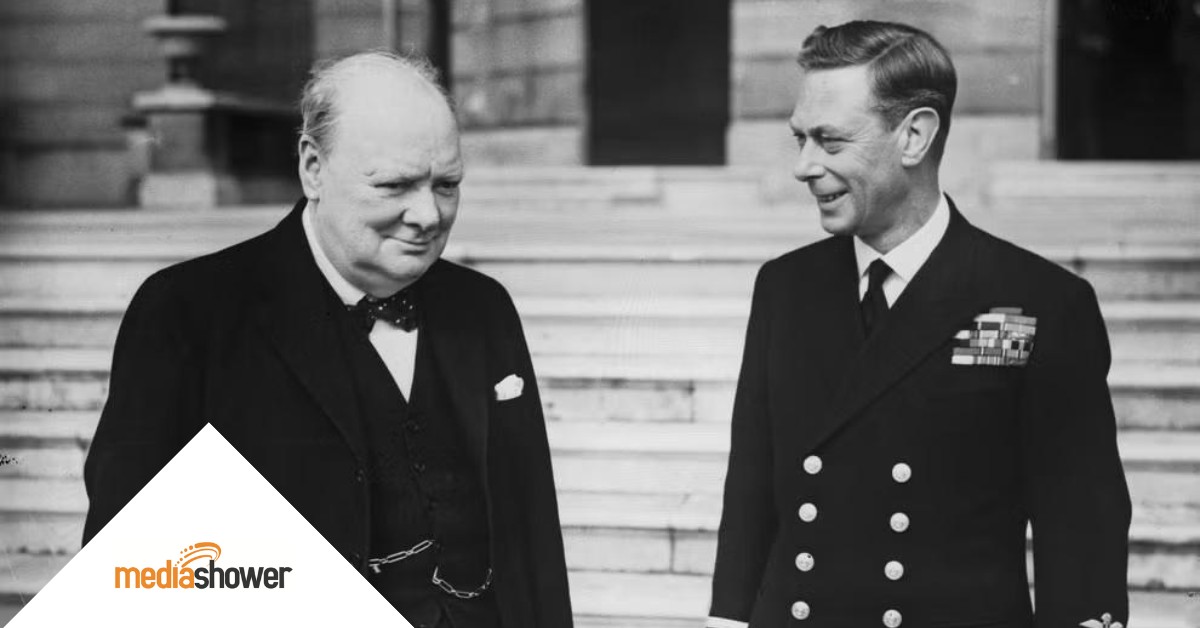
In 1939, barely two decades after the end of a worldwide conflict that shattered a generation, King George VI had the solemn duty of informing the British people that the United Kingdom had declared war on Nazi Germany and that a second World War was on the way.
While the context around the speech has been made famous (mainly thanks to the 2010 Oscar-winning film “The King’s Speech”), George VI’s words deserve a closer analysis by communicators. George VI uses the contrast between Nazi Germany’s disregard for treaties and Britain’s honoring of them to show why citizens of the world should act on behalf of others, demonstrating leadership and encouraging calm despite a debilitating impediment.
Face Difficult Issues Head-On
Despite being king, George VI carefully used inclusive language with his audience. At the time, the British government had control of a vast swath of territory, yet he made it clear that his message was not as a king but as a fellow citizen:
“In this grave hour, perhaps the most fateful in our history, I send to every household of my peoples, both at home and overseas, this message, spoken with the same depth of feeling for each one of you as if I were able to cross your threshold and speak to you myself. For the second time in the lives of most of us, we are at war.”
This sets the stage for his acknowledgment that war has been declared… a horrifying prospect for those who had already been through a previous one. It’s important, then, that the king uses techniques we’ve discussed several times before building a community.
George had seen combat while serving in the Navy during World War I, as his audience was well aware. He uses this experience to acknowledge that many listening have also seen war. He brings them into the speech and, in many ways, reminds them of an old enemy.
The closing of the speech has similar language:
“The task will be hard. Dark days may be ahead, and war can no longer be confined to the battlefield. But we can only do the right as we see the right, and reverently commit our cause to God.”
Understand Your Audience
Throughout the speech, George VI showed a strong knowledge of his audience and their familiarity with world events.
British newspapers had been following the worrying sequence of invasions and treaty violations beginning in 1938, when Hitler annexed Austria, an action banned by two treaties. This was followed by the seizure of the Sudetenland, part of Czechoslovakia, then an invasion of the more significant Czech state and more illegal land seizures in what amounted to geopolitical blackmail.
Early in George VI’s radio speech, he underscored this:
“Over and over again, we have tried to find a peaceful way out of the differences between ourselves and those who are now our enemies. But it has been in vain. We have been forced into a conflict.”
This is a further call to the audience.
“It is the principle which permits a state, in the selfish pursuit of power, to disregard its treaties and its solemn pledges; which sanctions the use of force, or threat of force, against the sovereignty and independence of other states.”
The British people had broadly supported peace. George VI emphasizes that peace was not broken lightly because his speech is focused on the emotional, not factual. He doesn’t review the complex geopolitical issues around these invasions or the broken treaties. He knew his audience was well informed of what had happened, and thus he focused on why it matters.
Anticipate Criticism
George VI then addressed a common criticism in his speech: Why was this a problem for the people of Britain?
“…if this principle [of might makes right] were established throughout the world, the freedom of our own country and of the whole of the British Commonwealth of Nations would be in danger. But far more than this — the peoples of the world would be kept in the bondage of fear, and all hopes of settled peace and of the security of justice and liberty among nations would be ended.”
This had been the subject of debate ever since Hitler had taken power in Germany in 1933. Leaving aside that a group of Britons agreed with Hitler’s ideas, for many, these events seemed primarily to be a dispute between Germany and the remnants of its WWI ally, the Austro-Hungarian Empire. George VI cuts through this argument by pointing out that eventually, the British would be under threat, and worse, they wouldn’t be alone.
Also, George notes that Hitler’s actions, even if they weren’t threats to the British at the time, virtually guaranteed a new war that Britain would be involved in eventually. This underscored the problematic choices the British government faced and why it had to declare war for the longer-term security of its people.
Key Takeaways
George VI was correct that difficulties lay ahead. The United States wouldn’t join the war until the end of 1940 with the bombing of Pearl Harbor. While it could offer material support, the British had to face a multi-front war, including unprecedented bombing attacks on major cities, essentially alone after the invasion of France. Thanks in part to the moral clarity of George VI’s words, the United Kingdom withstood the assault and triumphed both on the battlefield and in the moral sphere.
For communicators, George VI’s speech has the following lessons:
- Don’t get into details if you’re sure your audience is familiar with your topic.
- Acknowledge complex issues for different sectors of your audience.
- Draw a sharp contrast between what you’re criticizing and the actions you want your audience to take – in facts, tone, and action.
- Tackle anticipated criticism when taking a firm stand, but avoid attacking your critics.
At Media Shower, we’ve helped over 500 clients take their marketing and communication to the next level. Sign up for a free trial of our award-winning platform.
